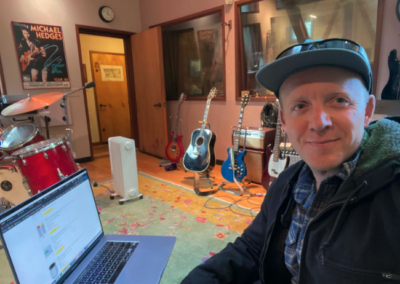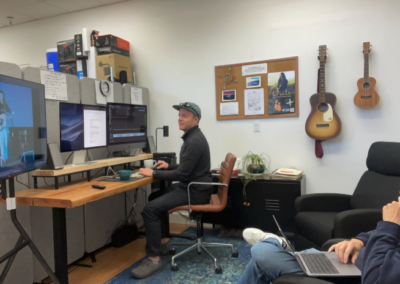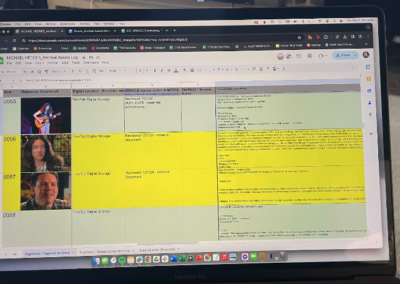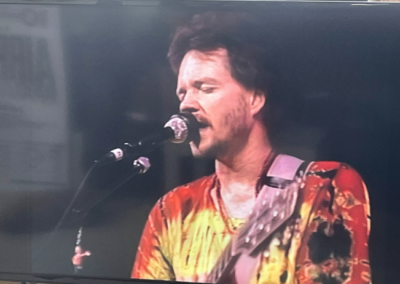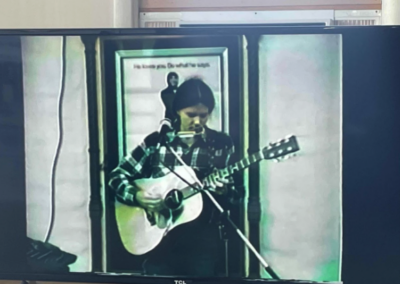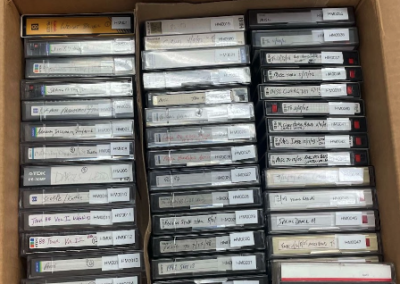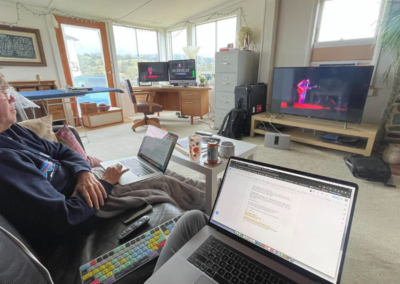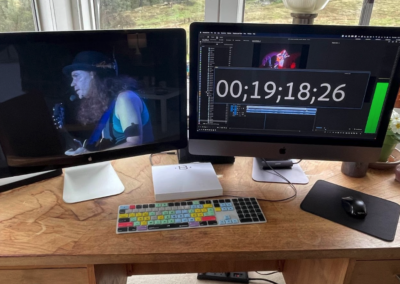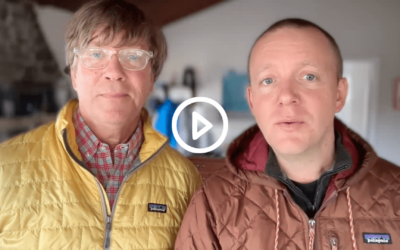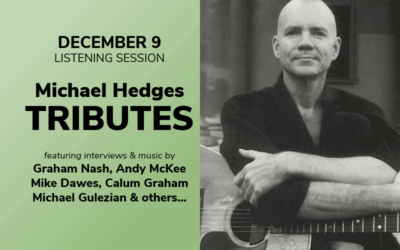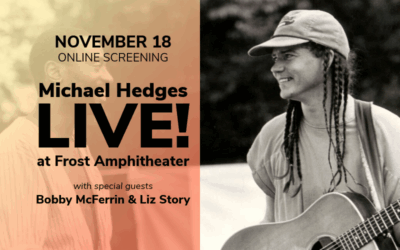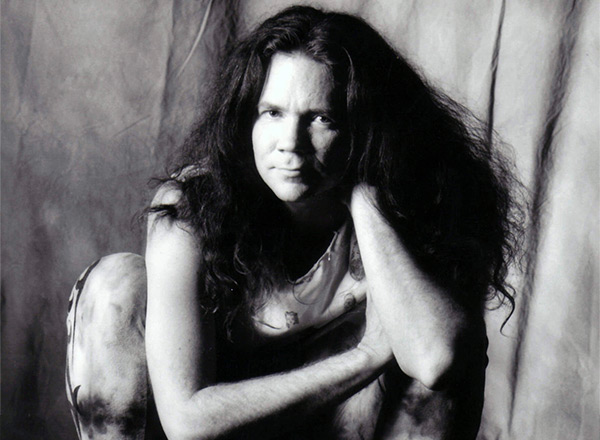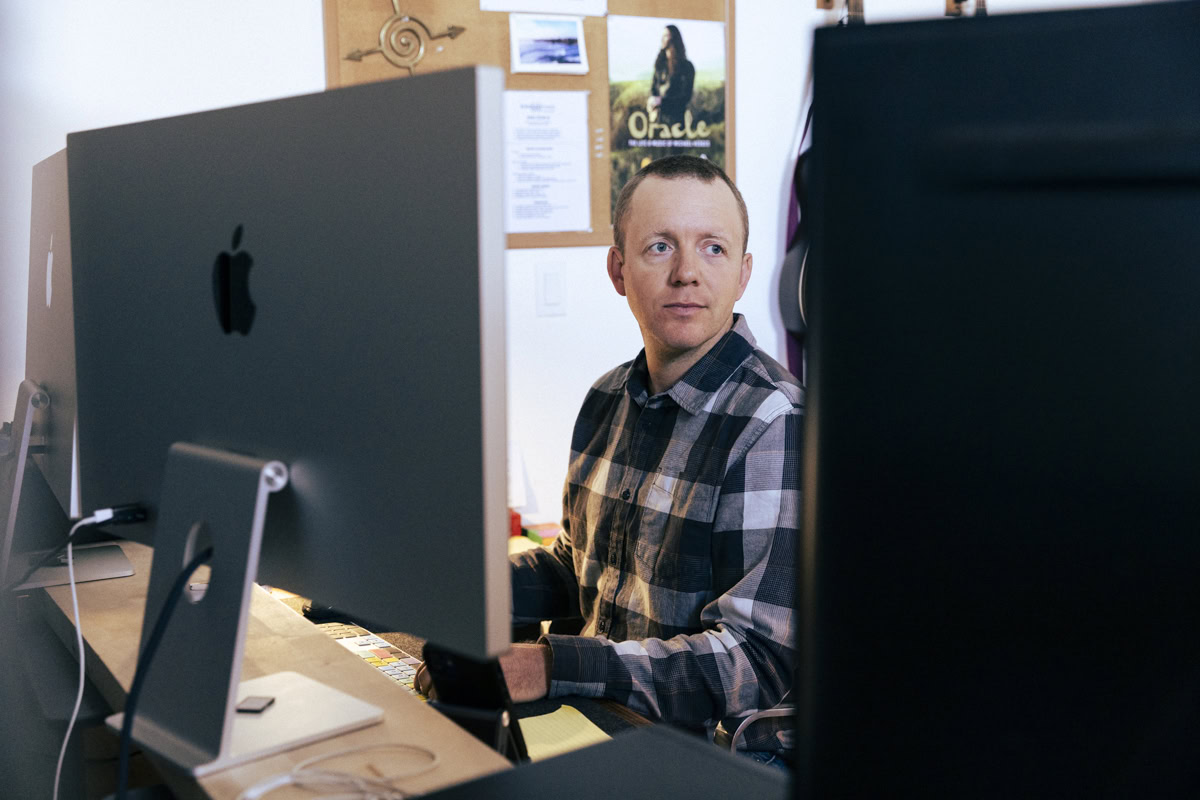
By Mischa Hedges, Michael’s son
I always can tell when I’m getting “Deep” into an edit when I start dreaming at night about the film I’m cutting. When I start drifting off into thoughts about story structure while driving somewhere, or thinking about the perfect music to use in a scene as I’m halfway through my morning run.
When my friends and family first learned I was working on this film – they wondered aloud about what working on a film this personal would bring up for me. They asked me how I would cope with the fact that I’d need to re-live many moments of my father’s passing while telling this story. Although I’ve been in a ‘stable’ place with accepting my father’s passing for many years (therapy, the passage of time and finding balance in my life), I knew it’d still affect me.
Throughout the filming process, there have been plenty of emotional moments for Brendan and I – interviewing family, learning about the grief his friends and collaborators felt after Michael’s passing, and how it’s affected them. But editing brings this to a whole other level.
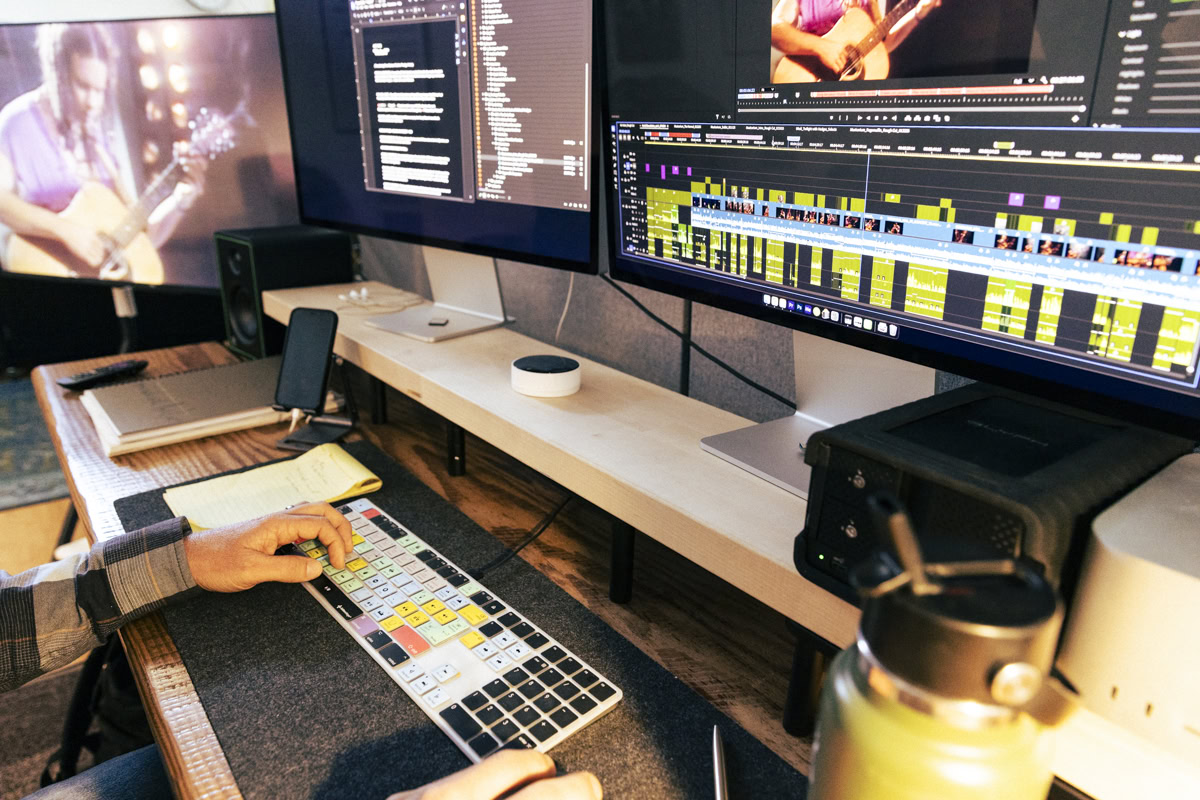
Editing a documentary is a fully immersive process – it becomes a part of your everyday.
With hundreds of hours of footage to review, tens of thousands of decisions to be made, and the fact that it often takes a week or two to cut a single scene together, means I’m looking at the same emotional moments for dozens of hours in a row.
As with any film, it creeps into my everyday thoughts – while I’m cooking dinner, while I’m prepping my morning coffee, as I’m sitting at the table with my family. It can be a lot to endure, but getting completely immersed in a story is a part of the filmmaking process. And with this film, I’m literally all in.
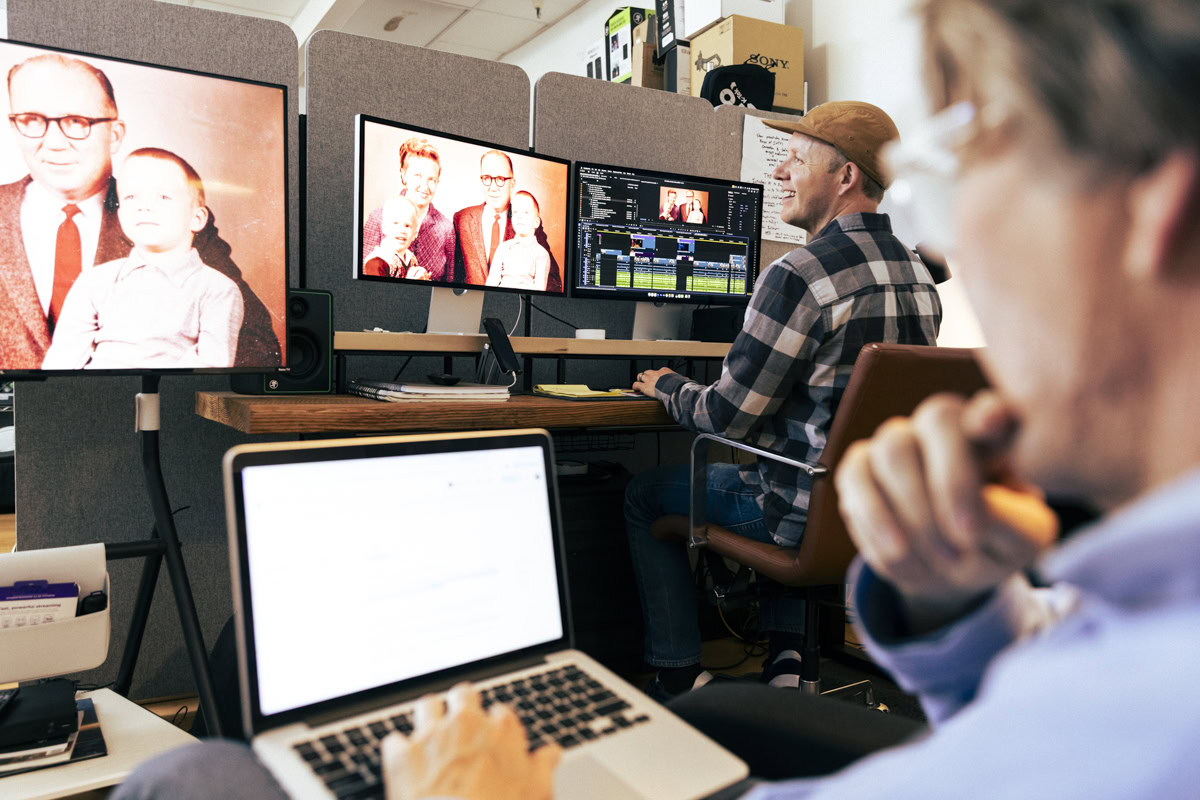
Thankfully, Brendan and I have been sharing some of that burden. As we’ve edited ORACLE – he’s taken the first pass by creating a “paper edit” of each major segment and its scenes from the interview transcripts. Then I review and organize all the footage for the segment, assemble each scene, make adjustments, and we start cutting it down to the essentials together. We add visuals, the score, and titles – building the film, one piece at a time.
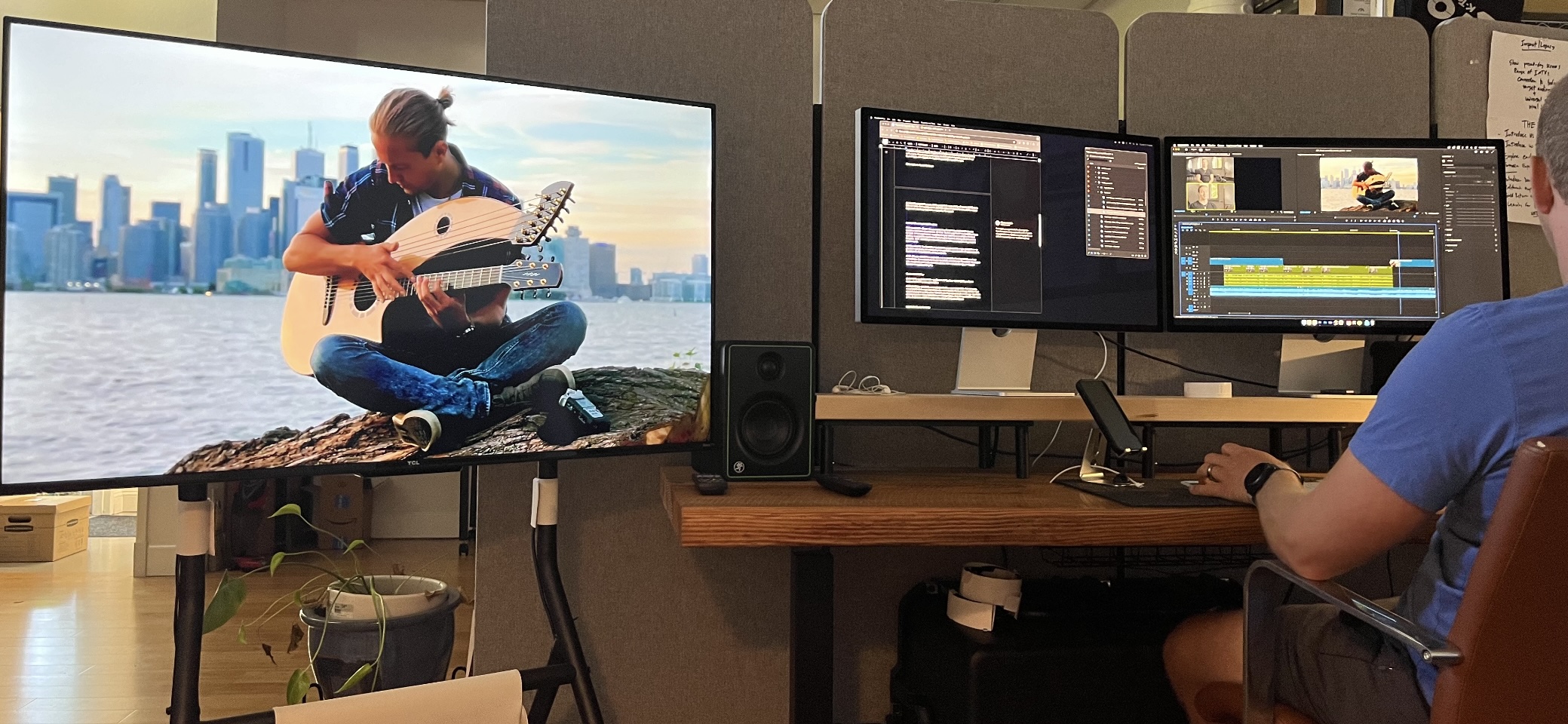
Over the past 8 months, we edited many scenes for “The Next Generation” – a segment of the film that explores Michael’s impact on guitar players and musicians worldwide. We wove together the stories of several musicians who were inspired by Michael, and who today are introducing an even younger generation to his music by paying tribute to the techniques he brought to the guitar. It’s shaping up to be a powerful segment of the film that shows how Michael’s legacy is living on and inspiring another generation of musicians.
At the start of 2025, we began editing “The Early Days” – a segment of the film that tells Michael’s origin story. We’re working on scenes about his childhood in small-town Oklahoma, where he began to develop his piano and guitar playing skills, and where he became inspired to compose his own music.
Through multiple edit sessions, we whittle down scenes, second by second, minute by minute, to make sure they are focused and as strong as they can be, that they don’t drag or bog down the audience with too much information, and that they represent the story accurately and move it forward in a compelling way. We’re continuously checking our biases and assumptions to make sure each scene is relevant to the film’s intended audience and is there for a good reason.
That process involves thousands of decisions, leaving moments we love ‘on the cutting room floor’ and experiencing all kinds of wins and losses along the way. Some find it brutal, but for me, editing is one of the most creative parts of the filmmaking process. As long as I’m balancing the screen time with outdoor time, and a break from time to time, I love it.
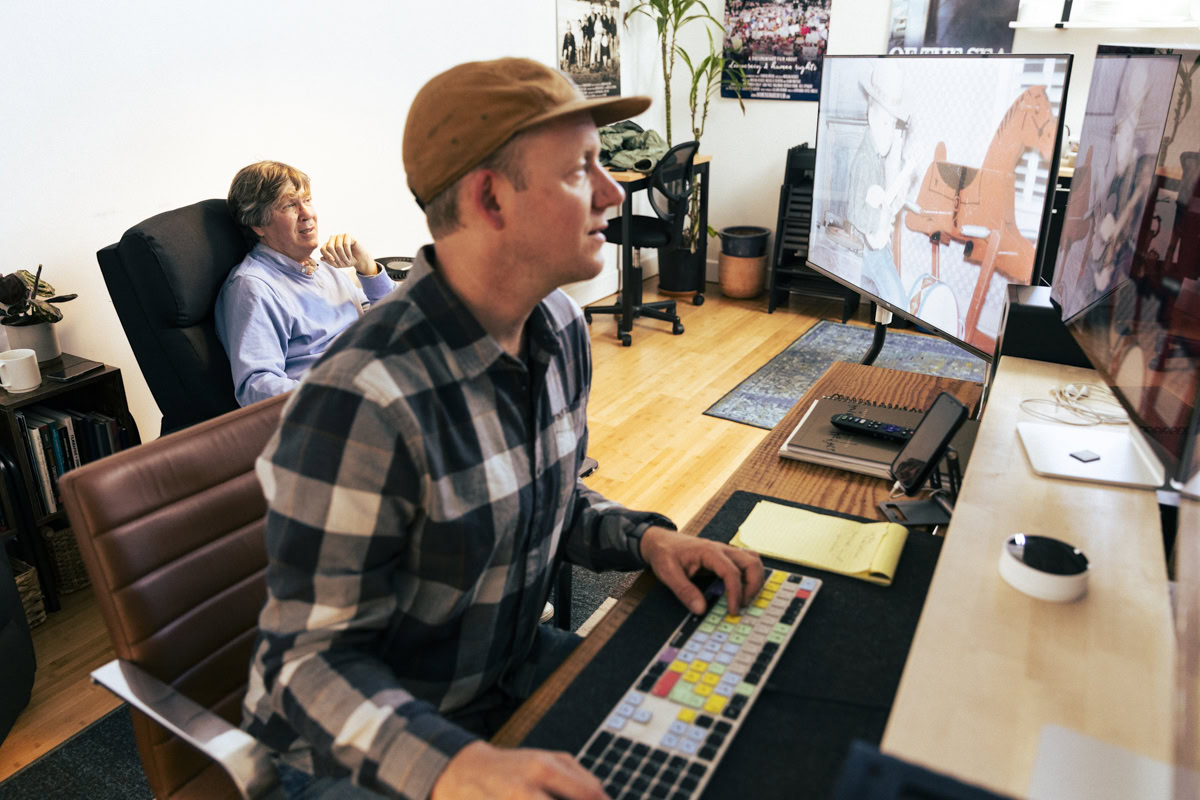
It’s a marathon, not a sprint…
As we’ve said before, editing a film is a marathon, not a sprint. It takes the long view to get through editing a feature. The ways I’ve learned I can cope with this process is to do focused work on a scene or segment until I can’t look at it anymore, take a step away to gain perspective, and come back to it with ‘fresh eyes.’
Over the past several years I’ve gotten into ultra marathon running – which has many parallels to the editing process.
Training for these races has served me well in editing documentaries, and other challenging parts of life. An ultra marathon takes a long time to complete, there are many ups, downs, and often you have to push through some pain to get to the finish line.
Every editing workday I do includes plenty of exercise (running, paddling, yoga or meditation) to balance out the intensive screen time, give my body the movement it needs, my mind a rest and the chance to reset.
I usually only run one ultra marathon per year, but while editing this project, I’ve completed several! I know it’s my own response to needing some extra balance while working intensively on a project this personal.
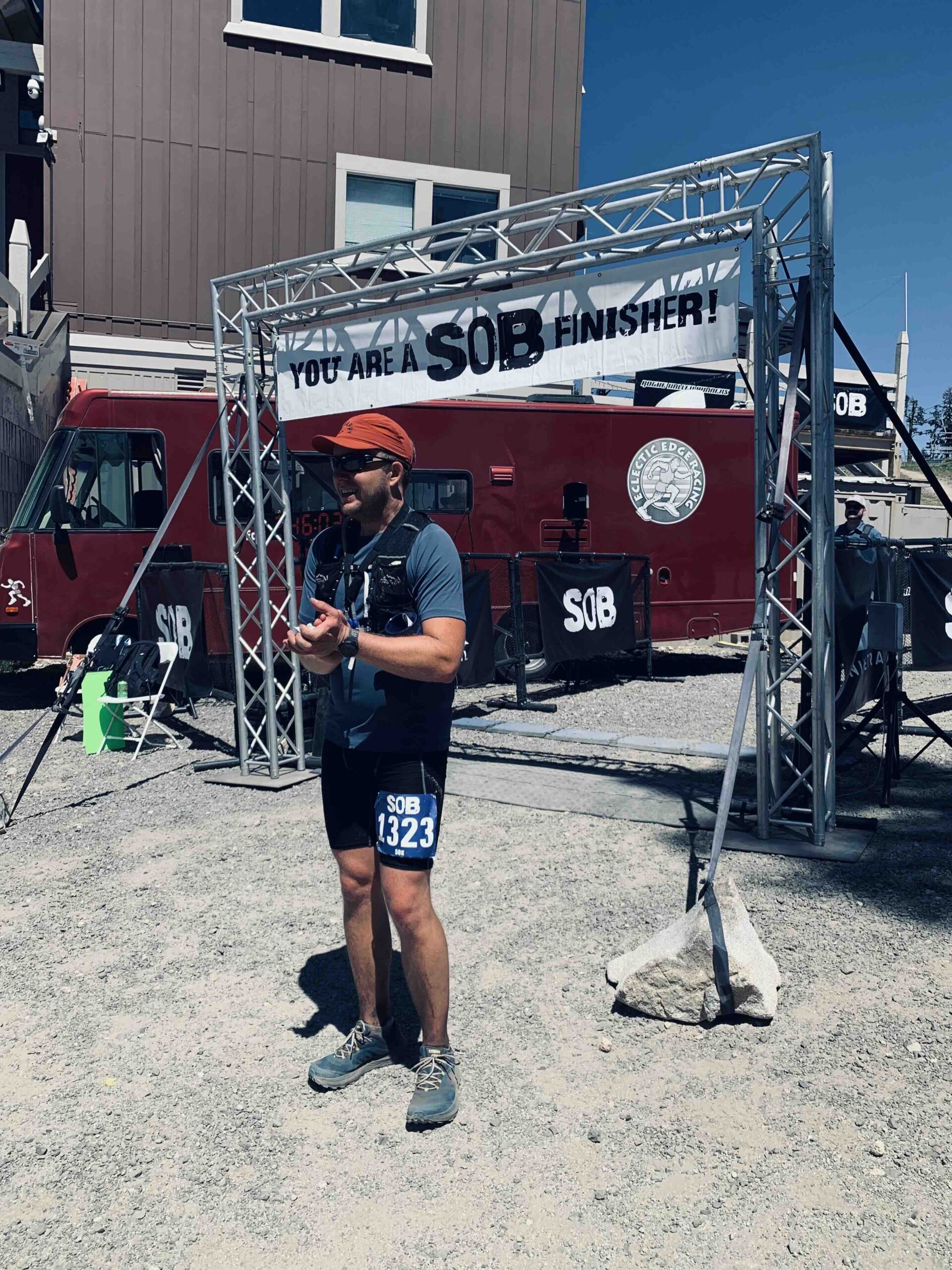
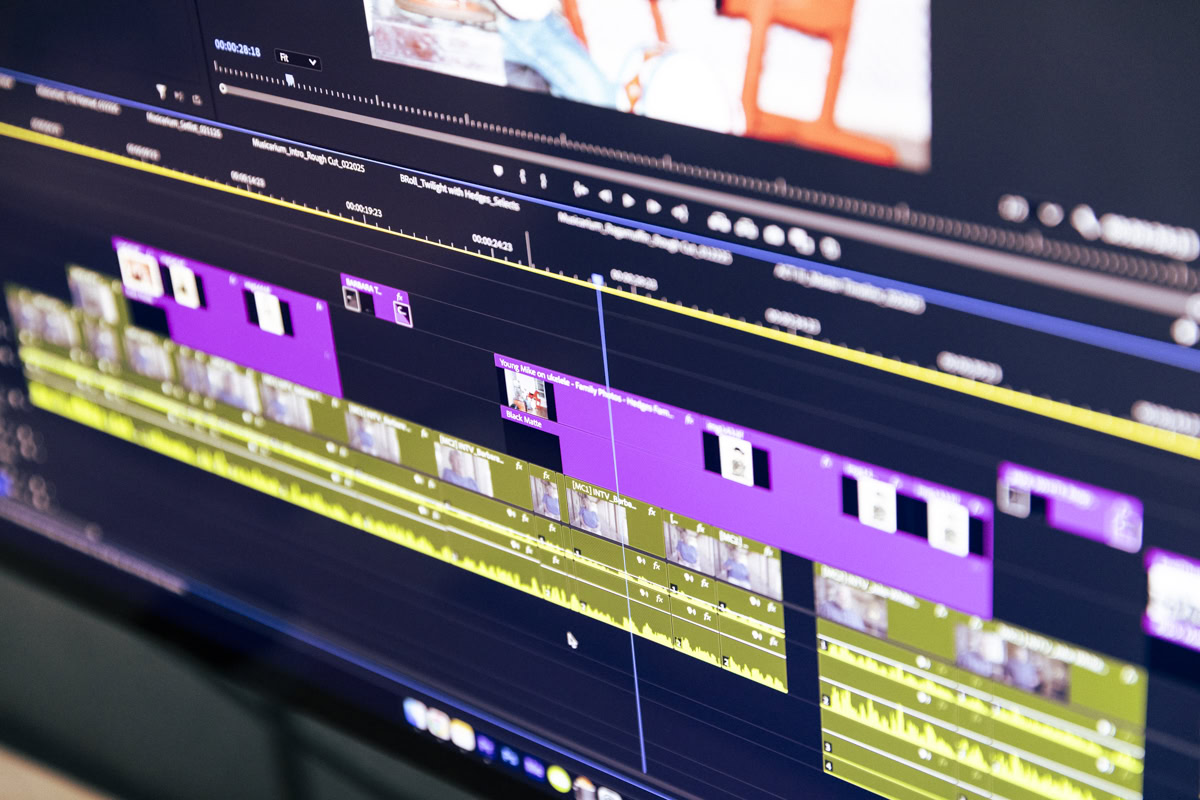
Fresh eyes, feedback and new perspectives
Every few months, we take a week or two away from the edit to give our minds a break and come back to it with fresh eyes. Often we’ll have new perspective on a scene, fresh energy to focus on a challenging segment, or brand new ideas for story structure or a key transition in the film.
We also regularly show in-progress scenes and segments of the film to our filmmaking and project advisors. Asking others to review our work and give feedback provides valuable perspective. It serves as another check and balance for us, since we’re so close to this footage, and to this story.
Watching in-progress work is a chance to step back from the intense process of editing and view the film through the eyes of others. The next time we sit down for a session, we can make adjustments to make it more relevant, or address moments that ‘didn’t work’ for viewers. Once we have a full rough cut of the film, we are planning to host a full work-in-progress screening with our advisory team, and bring in additional documentary editors and/or story consultants. More ‘fresh eyes’ to take a pass at the rough cut and bring their sensibilities to the editing process, making the film the best it can be.
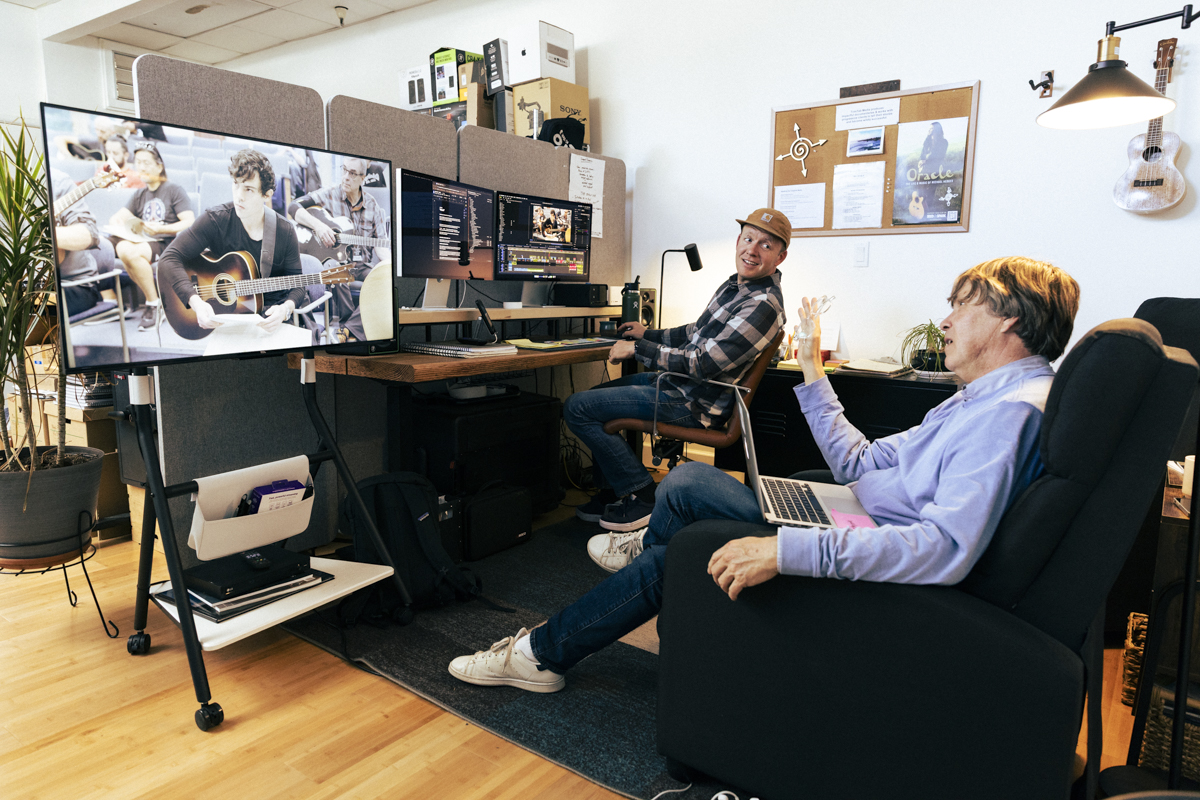
Brendan and I started this project because we knew Michael’s story would resonate with others, and because we knew the power and impact his music has had on people’s lives. From the start, we’ve wanted this film to reach an audience with different interests, perspectives, and knowledge of the topic (IE not just Hedges / guitar fans!).
We’re so grateful for the support, patience and encouragement from our friends, family, supporters and sponsors as we’ve embarked on this (ultra) marathon in filmmaking.
Wish us luck as we dive back in to the edit!
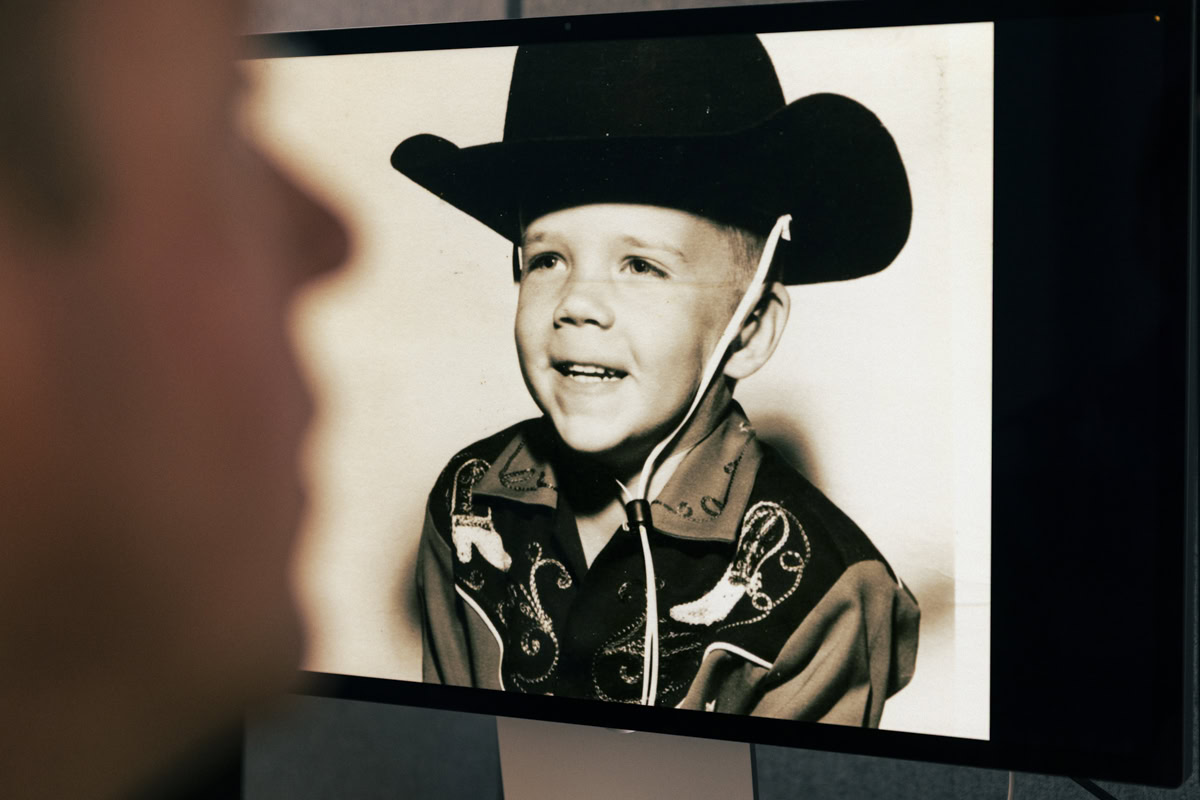
BECOME A SPONSOR
This film is being funded in part by Michael’s fans, angel donors, business sponsors and grant funding
Review 2025 sponsorship benefit packages and let us know how much you plan to contribute.
To make your contribution by paper check:
– Fill out the form to right so we can track your donation
– Make check out to:
“International Documentary Association (IDA)”
and write “Oracle Documentary 5439” in the memo
– Send check to:
International Documentary Association
Attention: Fiscal Sponsorship
3600 Wilshire Blvd., Suite 1810
Los Angeles, CA 90010-2622
